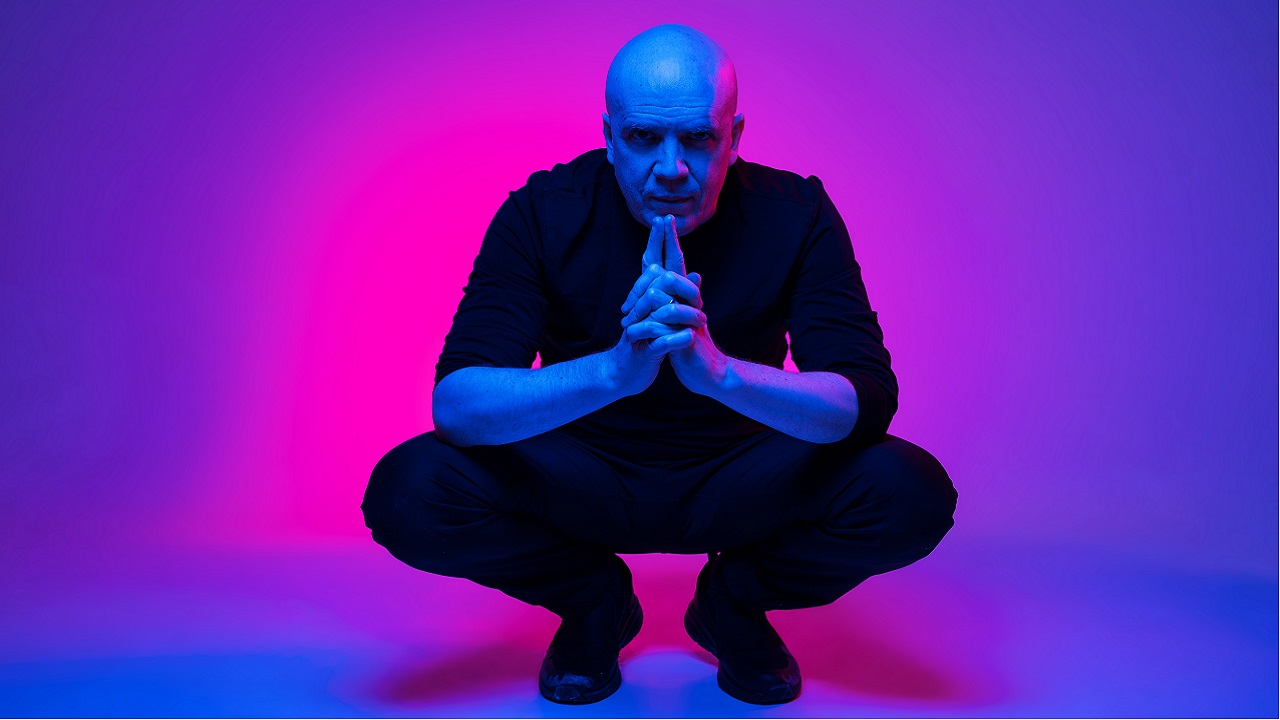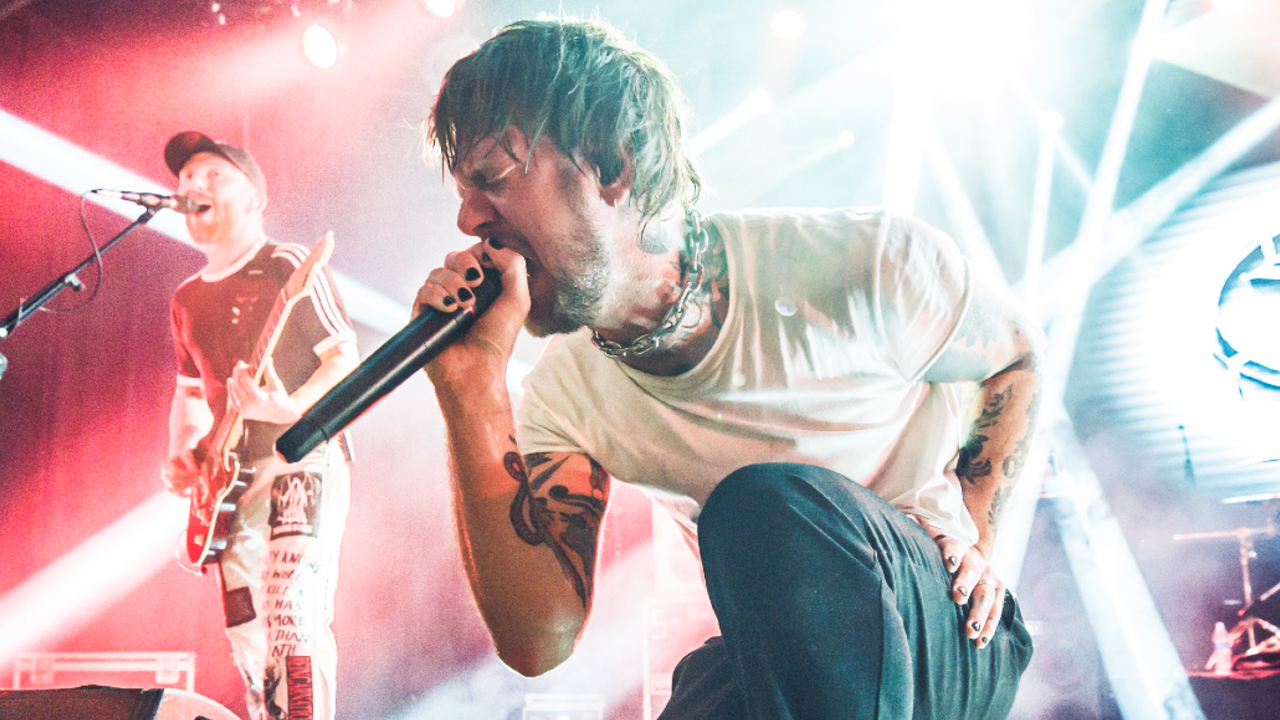Devin Townsend: "I don't enjoy suffering by my own hand if I can prevent it"
Devin Townsend gets deep on burnout, addiction and working to become a better person

Select the newsletters you’d like to receive. Then, add your email to sign up.
You are now subscribed
Your newsletter sign-up was successful
Want to add more newsletters?

Every Friday
Louder
Louder’s weekly newsletter is jam-packed with the team’s personal highlights from the last seven days, including features, breaking news, reviews and tons of juicy exclusives from the world of alternative music.

Every Friday
Classic Rock
The Classic Rock newsletter is an essential read for the discerning rock fan. Every week we bring you the news, reviews and the very best features and interviews from our extensive archive. Written by rock fans for rock fans.

Every Friday
Metal Hammer
For the last four decades Metal Hammer has been the world’s greatest metal magazine. Created by metalheads for metalheads, ‘Hammer takes you behind the scenes, closer to the action, and nearer to the bands that you love the most.

Every Friday
Prog
The Prog newsletter brings you the very best of Prog Magazine and our website, every Friday. We'll deliver you the very latest news from the Prog universe, informative features and archive material from Prog’s impressive vault.
A lot of things come to mind when you think of Devin Townsend. Skullets. Puppets. Farting ballbags. The Canadian is one of metal’s most unpredictable forces, but he’s unfailingly polite, warm and chatty while Hammer attempt to extricate his life lessons.
Here, Devin reflects on everything from workaholism, sobriety and mental health to what artistry means to him after 50 years on this planet.

It’s better to know you’re full of shit than to pretend you’re not
“A lot of my youth was spent confused about fundamental emotions: anger, sadness, grief, all these things. I had kind of a stoic upbringing – overt displays of emotion were viewed as uncouth. Then the pandemic came, and I couldn’t suppress emotions in the ways that I’d been able to before.
I realised, ‘Wow, you haven’t seen what you really are.’ That allowed me to participate in a lot of things I’d repressed, whether that was anger or grief or even happiness, on a level. The good thing about that is there was a sense of honesty that came with it. By knowing, you can then deal with it.”
Be who you are, not who you create
“The self-image that I had created for myself prior to the pandemic was one that was easily sustainable when things were fine. You can claim yourself as being a certain way, like, ‘I’m a peaceful person, I’m a calm person, I react to conflict in a balanced way.’
Sign up below to get the latest from Metal Hammer, plus exclusive special offers, direct to your inbox!
But in a vacuum, of course you do. With the pandemic, I found myself thrust into scenarios that were unfamiliar to me and that tested my resolve. Through that, I recognised that I wasn’t what I thought I was in a lot of ways.”
It’s ok to be a work in progress
“I certainly am. I came off an incredibly intense creatively productive period saying, ‘I need a break’ and then I started building a studio. I’m trying to figure it out, but I think that my current cross to bear is being so goal-oriented.
It’s easy for me to rationalise the amount of productivity that I continue to do, because I do it based on [the idea that], 'once this is done, I’ll be able to sit, I’ll be able to write, I’ll be able to relax'. But the more I learn about myself, the more I recognise that that’s the same mechanism that keeps coming back.”
Don’t become a martyr to your own ambition
“I went straight from the pandemic onto a three-month tour. I’m thinking, ‘There’s a lot of this I don’t wanna do.’ I love playing for people, but through the pandemic you stop rationalising and start thinking that ‘If I just stop, there’s a good chance that this isn’t going to continue.’ So, my hyper-productivity over the past couple of years, I like to think has been to set myself up for the next things. I like to think that I’m learning, and I actually do really think I am.”
Know when to quit
“When things are flashy, if you’ve got a stage show and lights and you’re making money by telling people they should go fuck themselves, that acts as a way for others to go, ‘Oh, that’s acceptable. It’s clearly acceptable, because Coke is sponsoring it, or Monster Energy is sponsoring it.’
I don’t think it’s fundamentally bad, but I’m not a masochist. I don’t enjoy suffering by my own hand if I can prevent it. When you recognise that thing that you do is causing you to suffer in ways that you clearly don’t enjoy, if you continue to do it, that’s on you. You forfeit the right to complain about it.”
Sometimes you just need something to look forward to
“Coffee is utilitarian for me. I like it, but it’s not an enjoyable drink. It’s a practical drink for mornings. Periodically I’ll stop drinking it to see how it makes me feel, but I find that my mornings don’t get significantly better, and I don’t have something to look forward to. So, I drink it.”
Nostalgia doesn’t make bad coffee taste any better
“Canadians romanticised [Canadian coffee chain] Tim Hortons in the 90s, but it was bought by an American company in the 00s. They did it quietly because so much of their market share depended on the brand loyalty being patriotic. We were blinded by the loyalty, ’cause tasting it today, I’m like, ‘Wow, this is not a delicious coffee. It’s a bit like boat gas.’”
Addiction can manifest in many ways
“Working your way through addiction requires looking at the root cause much more so than the reactions. On some level, alcohol and drugs can manifest as a physical disease. But if your connection to it is much more about covering up a fundamental lack, it will migrate. It will go from work to booze to coffee to sex, to… anything. That process is a much harder one to break, because it requires looking at motives in a way that is not always comfortable.”
A lot of people are only in it for themselves…
“We came through the pandemic with a sense of, ‘We’re all in this together’, but there’s a sense of duality. ‘We’re all in this together’, but also, ‘Stay the fuck away from me.’ It just doesn’t work.
A lot of the unease comes from that, where you’re compelled to try and be cognisant of others, but also have to defend yourself. Maybe that’s the rub. Maybe that’s the thing that is so important. How do you cultivate compassion for other people when you’re afraid? I wish I had an answer.”
…because they’re afraid
“You’re afraid of being hurt. If you’re trying to impose boundaries in a fundamentally chaotic period, I think at least in the interim a certain degree of that can be forgiven. Of people weaponising certain things that shouldn’t be weaponised, like certain [mental health] terms, or behaviours… Maybe not even weaponising but using it as an excuse.
I think that as we’re trying to find some balance in this world that we’ve now found ourselves in, there is a certain degree of latitude that can be extended. Like, ‘Now what do we do? How do we find our footing again?’ But instead, ‘This is mine, this is mine, fuck you, whatever’, right?”
Worse shit has happened to better people
“This is the biggest lesson I ever learned. It’s a quote that I heard that helped me. It might have been my dad, it might have someone else, but it helped me and continues to help me whenever I start to feel hard done by, like life isn’t fair. Worse things have happened to people that are far better than I. Whenever I start going down that avenue of feeling like, ‘Why me?’, it’s easier sometimes to be like, well, why not me?”
You are more than your job…
“It’s easy as someone who’s maybe insecure, to internalise the nice things people say about my music and be like, ‘That’s my identity, there. Music.’ But in absence of that, who am I? One of the hardest things I’ve had to make peace with over the last 25 years is that your music, your thoughts, your family, your work, your body, all these things are not your identity. Your identity is a lot more fundamental.”
…and that’s ok
“At this stage in my life, I’d much rather be aware of who I am in the absence of all that stuff, than playing to that as my identity. You can lose an arm, a finger, you can no longer play guitar, can’t hear… anything can happen. If your identity is completely tied to that, that’s rough. So, the process of unlearning these things is very important, I feel.”
Lightwork is out now via Insideout
